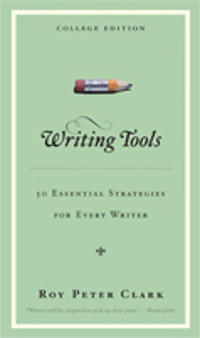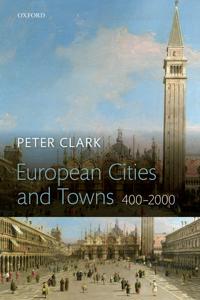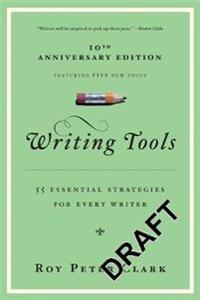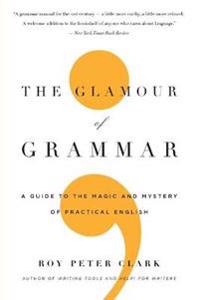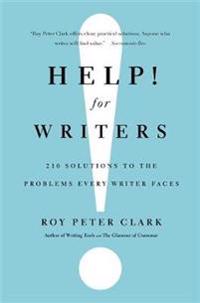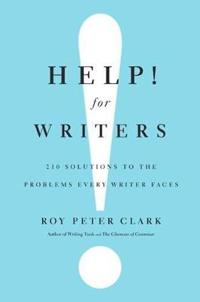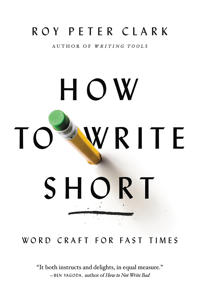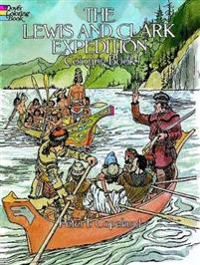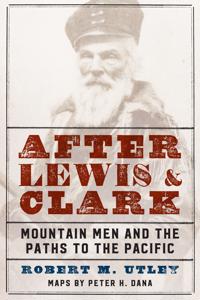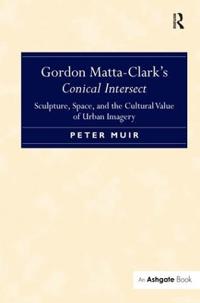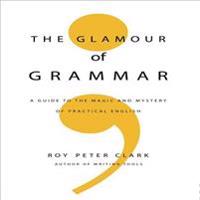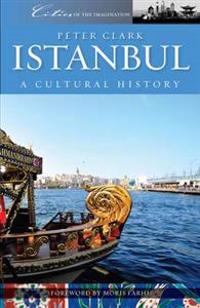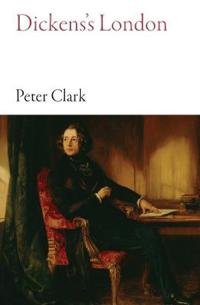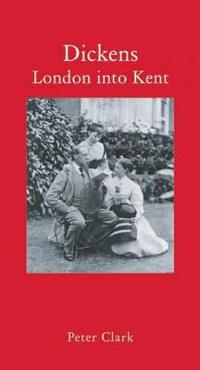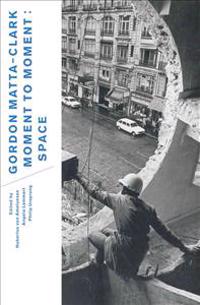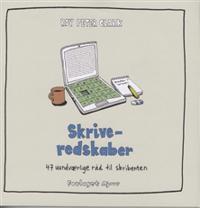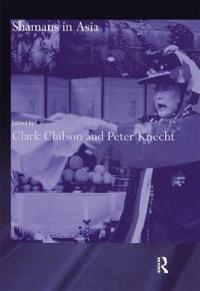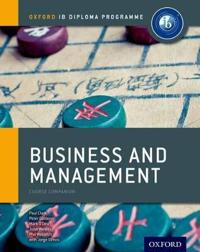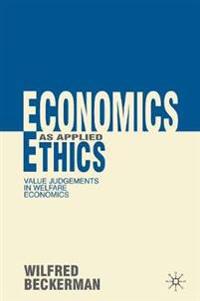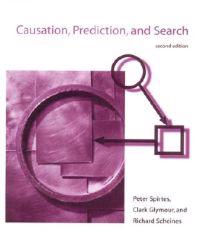Writing Tools: 50 Essential Strategies for Every Writer (Häftad)
avRoy Peter Clark, Roy Peter Clark
ISBN: 9780872899636 - UTGIVEN: 200804"Begin sentences with subjects and verbs", is the first tool in Roy Peter Clark's "Writing Tools: 50 Essential Strategies for Every Writer". "Own the tools of your craft", the last. Pithy, entertaining, and always straight-to-the-point, "Writing Tools" sandwiches 48 more useful tools in-between, on [...]
European Cities and Towns: 400-2000 (e-bok)
avPeter Clark
ISBN: 9780191547447Since the Middle Ages Europe has been one of the most urbanized continents on the planet and Europe's cities have firmly stamped their imprint on the continent's economic, social, political, and cultural life. This study of European cities and towns from the fall of the Roman Empire to the present d[...]
British Clubs and Societies 1580-1800: The Origins of an Associational World (Inbunden)
avPeter Clark
ISBN: 9780198203766 - UTGIVEN: 2000-01-06European Cities and Towns (Häftad)
avPeter Clark
ISBN: 9780198700548 - UTGIVEN: 200901Since the Middle Ages Europe has been one of the most urbanized continents on the planet and Europe's cities have firmly stamped their imprint on the continent's economic, social, political, and cultural life. This study of European cities and towns from the fall of the Roman Empire to the present d[...]
European Cities and Towns: 400-2000 (Inbunden)
avPeter Clark
ISBN: 9780199562732 - UTGIVEN: 2009-01-29Writing Tools (Häftad)
avRoy Peter Clark
ISBN: 9780316014991 - UTGIVEN: 200802Introduces a collection of fifty universal tools and strategies that writers of all kinds can use every day, accompanied by hundreds of examples from journalism and literature, ranging from "Watch those adverbs" to "Turn Your Notebook into a Camera." Reprint. 15,000 first printing.[...]
The Glamour of Grammar (Pocket)
avRoy Peter Clark
ISBN: 9780316027908 - UTGIVEN: 201109Early in the history of English, the words 'grammar' and 'glamour' meant the same thing: the power to charm. Roy Peter Clark, author of Writing Tools, aims to put the glamour back in grammar with this fun, engaging alternative to stuffy instructionals. In this practical guide, readers will learn eve[...]
Help! for Writers (Häftad)
avRoy Peter Clark
ISBN: 9780316126700 - UTGIVEN: 201301The craft of writing offers countless potential problems: The story is too long; the story's too short; revising presents a huge hurdle; writer's block is rearing its ugly head. In HELP! FOR WRITERS, Roy Peter Clark presents an 'owner's manual' for writers, outlining the seven steps of the writing p[...]
Help! For Writers (Inbunden)
avRoy Peter Clark
ISBN: 9780316126717 - UTGIVEN: 201109The craft of writing offers countless potential problems: The story is too long; the story's too short; revising presents a huge hurdle; writer's block is rearing its ugly head. In HELP! FOR WRITERS, Roy Peter Clark presents an 'owner's manual' for writers, outlining the seven steps of the writing p[...]
How to Write Short (Pocket)
avRoy Peter Clark
ISBN: 9780316204323 - UTGIVEN: 2014-08In HOW TO WRITER SHORT,Roy Peter Clark turns his attention to the art of painting a thousand pictures with just a few words. Short forms of writing have always existed - from ship logs and telegrams to prayers and haikus. But in this ever-changing internet age short-form writing has become an essent[...]
How to Write Short (Inbunden)
avRoy Peter Clark
ISBN: 9780316204354 - UTGIVEN: 2013-08In HOW TO WRITE SHORT, Roy Peter Clark turns his attention to the art of painting a thousand pictures with just a few words. Short forms of writing have always existed--from ship logs and telegrams to prayers and haikus. But in this ever-changing Internet age, short form writing has become an essent[...]
Practical Ethics for the Food Professional: Ethics in Research, Education a (Häftad)
avJ. Peter Clark, Christopher Ritson
ISBN: 9780470673430 - UTGIVEN: 2013-07-31Focuses on the ethical issues confronting food industry professionals Introduces the general concepts of ethical reasoning before presenting issues faced by the food industry Includes real life case studies which apply concepts to practice USA and UK Editor team offer a global perspective.[...]
Lewis and Clark Expedition Coloring Book (Pocket)
avPeter Copeland
ISBN: 9780486245577 - UTGIVEN: 1984-0145 accurate, precisely rendered illustrations recapture highpoints of expedition. Captions identify action and provide background information.
[...]After Lewis and Clark (Pocket)
avRobert M. Utley, Peter H. (ILT) Dana, Robert M. Utley
ISBN: 9780803295643 - UTGIVEN: 2004-11In 1807, a year after Lewis and Clark returned from the shores of the Pacific, groups of trappers and hunters began to drift West to tap the rich stocks of beaver and to trade with the Native nations. Colourful and eccentric, bold and adventurous, mountain men such as John Colter, George Drouillard,[...]
Gordon Matta-Clark's Conical Intersect (Inbunden)
avPeter Muir
ISBN: 9781472411730 - UTGIVEN: 2014-05In this in-depth analysis, Peter Muir argues that Gordon Matta-Clark's Conical Intersect (1975) is emblematic of Henri Lefebvre's understanding of art's function in relation to urban space. By engaging with Lefebvre's theory in conjunction with the perspectives of other writers, such as Michel de Ce[...]
The Glamour of Grammar: A Guide to the Magic and Mystery of Practical English (CD-bok)
avRoy Peter Clark
ISBN: 9781596595224 - UTGIVEN: 2010-10Roy Peter Clark is one of the most influential writing teachers in the U.S. His book, Writing Tools, has 65,000 copies in print and his podcasts have been downloaded from iTunes over 1 million times. Now he's returning to the roots of the English language with THE GLAMOUR OF GRAMMAR. This is an ench[...]
Istanbul (Häftad)
avPeter Clark
ISBN: 9781904955764 - UTGIVEN: 201009A Literary and Cultural History. A cultural history of Istanbul.
Dickens's London (Inbunden)
avPeter Clark
ISBN: 9781907973192 - UTGIVEN: 2011-12Few novelists have written so intimately about a city in the way that Charles Dickens wrote about London. A near photographic memory made his contact with the city indelible from a very young age and it remained his constant focus. Virginia Woolf maintained that, 'we remodel our psychological geogra[...]
Dickens: London into Kent (Inbunden)
avPeter Clark
ISBN: 9781907973802 - UTGIVEN: 2013-10Few novelists have written so intimately about a city as Charles Dickens wrote about London. A near-photographic memory made his contact with the city indelible from a very young age and it remained his constant focus. In the first half of this book Peter Clark illuminates the settings of Dickens's [...]
Skriveredskaber (Inbunden)
avRoy Peter Clark
ISBN: 9788792241177 - UTGIVEN: 2008Han er skrive-guru på verdensplan, manden fra The Poynter Institute i Florida, og de 47 skriveråd har været verden rundt via nettet. Med allehånde reaktioner som inspiration skrev han derefter bogen, der virkelig kan siges af være en globaliseret skrivebog. Med inspirerende eksempler [...]
Shamans in Asia (Inbunden)
avClark (EDT) Chilson, Peter (EDT) Knecht, Clark (EDT) Chilson
ISBN: 9780415296793 - UTGIVEN: 2003-07Shamans throughout much of Asia are regarded as having the power to control and coerce spirits. Many Asians today still turn to shamans to communicate with the world of the dead, heal the sick, and explain enigmatic events. To understand Asian religions, therefore, a knowledge of shamanism is essen[...]
IB Business and Management (Häftad)
avPaul Clark, Peter Golden, Mark O'Dea
ISBN: 9780198390091 - UTGIVEN: 201209With features and activities that encourage active learning and critical thinking, this book will improve skills across a range of areas. SL and HL are both covered entirely. This course book places the subject in a broader context, with features about famous figures in business and management, as w[...]
Economics as Applied Ethics (Häftad)
avPeter Spirtes, Clark Glymour, Richard Scheines
ISBN: 9780230278370 - UTGIVEN: 201012The focus of this textbook is on the link between ethics and economic policy analysis. Basic philosophical concepts are systematically described, followed by conventional welfare economic theory and policy, and applications to some topical economic problems such as income distribution and sustainabl[...]
Causation, Prediction and Search (Inbunden)
avPeter Spirtes, Clark Glymour, Richard Scheines
ISBN: 9780262194402 - UTGIVEN: 200103What assumptions and methods allow us to turn observations into causal knowledge, and how can even incomplete causal knowledge be used in planning and prediction to influence and control our environment? In this book Peter Spirtes, Clark Glymour, and Richard Scheines address these questions using th[...]

